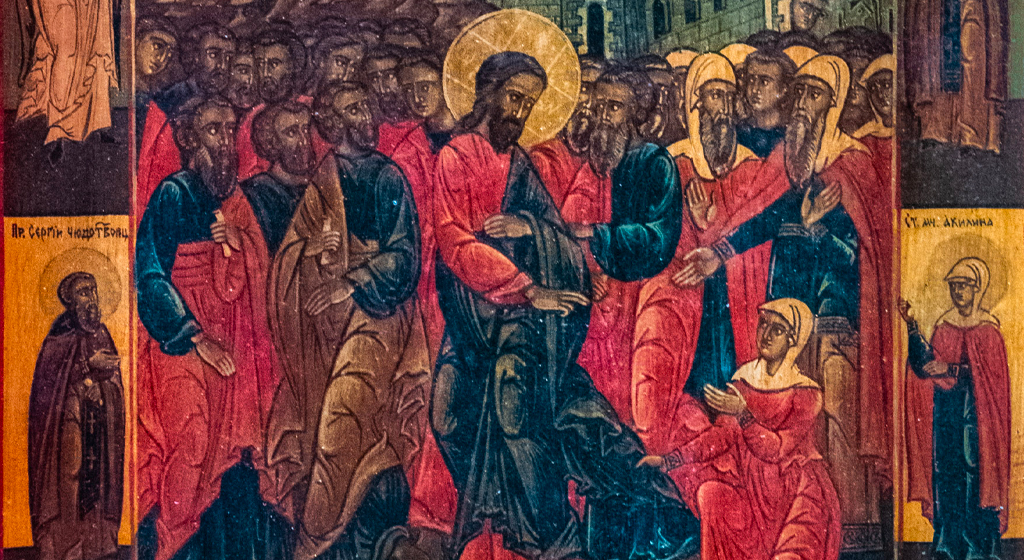Memory of the Poor
Reading of the Word of God
Alleluia, alleluia, alleluia
This is the Gospel of the poor,
liberation for the imprisoned,
sight for the blind,
freedom for the oppressed.
Alleluia, alleluia, alleluia
Acts 16,11-15
Sailing from Troas we made a straight run for Samothrace; the next day for Neapolis, and from there for Philippi, a Roman colony and the principal city of that district of Macedonia. After a few days in this city we went outside the gates beside a river as it was the Sabbath and this was a customary place for prayer. We sat down and preached to the women who had come to the meeting. One of these women was called Lydia, a woman from the town of Thyatira who was in the purple-dye trade, and who revered God. She listened to us, and the Lord opened her heart to accept what Paul was saying. After she and her household had been baptised she kept urging us, 'If you judge me a true believer in the Lord,' she said, 'come and stay with us.' And she would take no refusal.
Alleluia, alleluia, alleluia
The Son of Man came to serve,
whoever wants to be great
should become servant of all.
Alleluia, alleluia, alleluia
The apostle Paul, called by the "Spirit of Jesus," arrived in Europe. Philippi is the first stop in this itinerary of the proclamation of the Word of God by Paul towards Rome. At this point, the text proceeds with the pronoun "we," suggesting that Luke and Silas had joined the mission of the apostle. A group of women, led by a cloth dealer named Lydia, welcome Paul to Philippi. Lydia is a God-fearing woman who after listening to Paul, she converts and asks to be baptized. She is a merchant, well-off, an Asian immigrant, a single and emancipated woman: she is the first converted in Europe. Luke makes of her the prototype of future conversions. Even the inner process of conversion is described carefully: "The Lord opened her heart to listen eagerly to what was said by Paul." The proclamation of the Gospel is not connected to the number of followers. The Gospel is aimed at changing every single person's heart. Christian fraternity comes from individual change of heart. Apostolic preaching works by changing people's hearts and linking them to each other with a fraternal bond. Lydia is baptised with her family and all those who were living in her house. It is significant that the first Christian preaching in Europe focused on the home. No longer in the synagogue and not even in Roman public places. It is the sense of a Christianity that takes on the traits of the "family," not understood as a nucleus, but as a home that welcomes everyone but preserves its "domestic" traits, with direct, fraternal, supportive and firm relationships. Lydia's insistence in hosting Paul and his companions is a special fruit of conversion to the Gospel: "If you have judged me to be faithful to the Lord, come and stay at my home." Luke notes: "And she prevailed upon us." We could say that welcoming foreigners is already written in the roots of European Christianity. It is urgent to revive them if the European Church wants to emerge from its sterility. One does not convert to Jesus for oneself or for one's own personal fulfilment. The fraternity born of evangelical proclamation has its own immediate opening of the heart and home.
